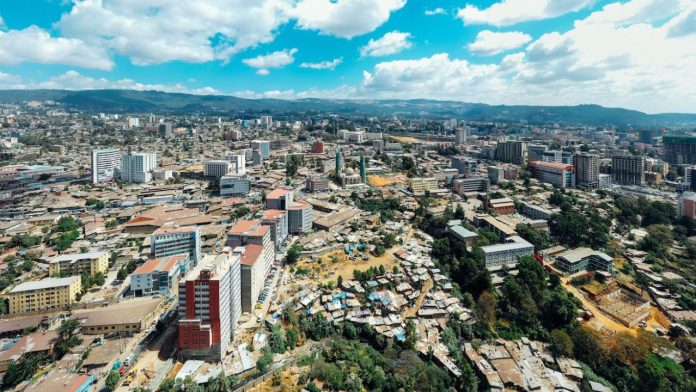Have you ever wondered which are the richest states in Nigeria in 2024? Well, today, we are going to explore the top 10 wealthiest states in this beautiful and diverse country. More so, we’ll share with you details about the FCT among Nigeria’s most prosperous states.
Nigeria is known for its abundant natural resources, vibrant culture, and booming economy. With a population of over 220 million people, Nigeria is Africa’s most populous nation, and its economy is the largest on the continent.
In this article, we will explore the top 10 richest states in Nigeria, focusing on factors such as GDP, average annual revenue, sources of wealth, natural resources, and human capital. We will also discuss the industries driving these states’ wealth and how they contribute to Nigeria’s overall economic growth. So, without further ado, let’s dive in and discover the richest states in Nigeria!
Some regions have been able to establish themselves as major economic hubs, leading to the emergence of a few wealthy states. Of all the 36 states in Nigeria, the richest states in Nigeria are Lagos, Rivers, Ogun State, Delta.
Internally Generated Revenue At State Level (IGR Stats)
According to the Nigerianstat.gov.ng, in H1 2021, the 36 states and the FCT generated N849,123,384,003.55 in internal revenue. The domestically generated revenue in the first quarter of 2021 was N398,259,343,434.98 while it was N450,864,040,568.57 in the second quarter. This corresponds to a 13.21% increase.
In H1 2021, Lagos state had the most Internally Generated Revenue (N267,232,774,434.06), followed by the FCT (N69,072,879,664.43) and Rivers state (N57,324,672,372.42). Yobe state had the lowest total at N4,031,033,046.55.
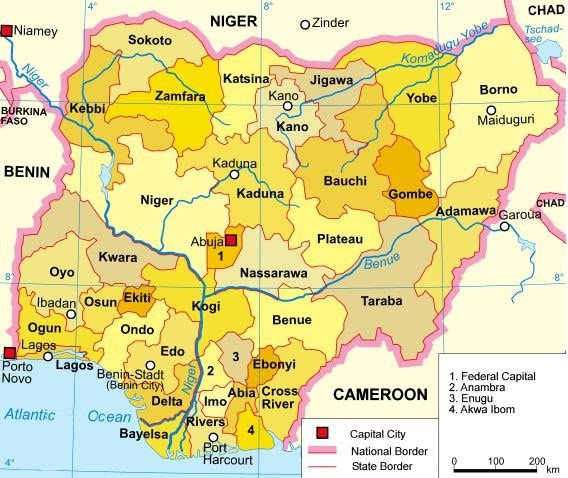
Last year, in the 2023, Lagos state, the richest state in Nigeria has GDP of over N400 billion Naira, with it’s major revenue source to be the oil sector, manufacturing industry, trade, and tourism.
Nigeria is divided into six geopolitical zones, each comprising several states. Among them, the southwest zone, backed by Lagos state, generated the highest revenue of over NGN 400 billion. This makes Lagos the wealthiest state in the country, a position it has held for many years.
Top 10 Richest States In Nigeria 2024 With Revenue Sources
The wealth of the states is determined mainly by their internal revenue and capital income. Based on these factors, the top 10 richest states in Nigeria are as follows:
- Lagos State (IGR N400 billion)
- Rivers State (IGR N123.3 billion)
- Ogun State (IGR N100.7 billion)
- Delta State (IGR N80.2 billion)
- Kaduna State (IGR N52.9 billion)
- Oyo State (IGR N52.1 billion)
- Edo State (IGR N42.4 billion)
- Kano State (IGR N40.4 billion)
- Akwa Ibom State (IGR N31.4 billion)
- Anambra State (IGR N30.9 billion)
1. Lagos State (IGR: N400 billion)
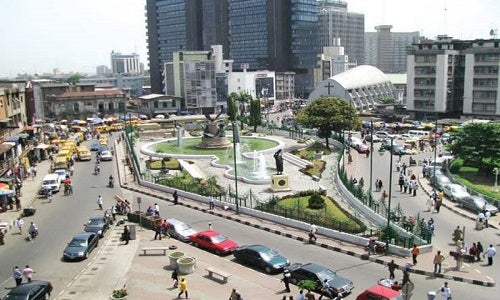
Lagos State Exceeds the N400 Billion IGR Mark in the First Half of last year. Lagos State, Nigeria’s economic powerhouse, recorded an astounding Internally Generated Revenue (IGR) of over N400 billion in the first six months of last year, demonstrating its robust financial strides.
Lagos State, located in the southwest of Nigeria, is widely regarded as the wealthiest state in Nigeria. Lagos State accounts for two-fifths of Nigeria’s domestic income, making it the only state in the country that independently produces half-year revenues in twelve figures. The state is also the third most populous city in the world and is a global metropolis of limitless economic prospects.
Lagos State’s economic and financial hub has a massive retail market that supports manufacturing sector activities. In addition, it is home to Africa’s first startup ecosystem, with over fifty per cent of its population connected to the internet.
The Lagos State industrial zones, such as Ikorodu, Ikeja, and Surulere, and ports such as Apapa and TinCan Terminals, account for more than half of the country’s industries. The city is also home to the Nigerian Stock Exchange (NSE) and most of the nation’s private-sector businesses.
Lagos State is home to many large-scale construction projects, such as the Dangote Group Oil Refinery, which, when completed, will become Africa’s largest oil refinery. Additionally, Eko-Atlantic is a planned 250,000-person city located on a reclaimed sea island south of the megapolis. Also, there are interesting tourist attractions in Lagos.
Lagos State’s economic prominence is due in part to its port, which handles over 1.2 million containers annually and three-quarters of Nigeria’s imported refined oil. The city’s international airport accounted for 75% of Nigeria’s international arrivals and departures in 2018, further cementing Lagos State’s position as Nigeria’s wealthiest state.
The state’s prominence as the wealthiest state in Nigeria is a testament to its vast economic opportunities and resources. Lagos State’s vision of transforming into the “Dubai of Africa” is well on its way to becoming a reality, as the state continues to attract investors and businesses to its shores.
Lagos State’s position as the richest state in Nigeria is partly attributable to its port, which handles more than 1.2 million containers annually and three-quarters of Nigeria’s imported refined oil. Lagos State is well on its way to transforming into the “Dubai of Africa,” with its vast resources, ideal location for tourism and modernity, and ongoing construction projects.
Related: List of Universities in Lagos State
2. Rivers State (IGR: N123.3 billion)
Rivers State, located in the Niger Delta region, is the second-richest state in Nigeria, with oil and gas production being its major contributor. The oil and gas sector accounts for 44.6% of the state’s gross domestic product, outperforming agriculture and computer technology, which each account for 10%.
Industry and services, on the other hand, contribute a mere 7% and 6%, respectively, to Rivers State’s gross domestic product.
Rivers State is home to the headquarters of Nigeria Liquified Natural Gas Limited, the national enterprise responsible for the production and export of liquefied natural gas. Through the national oil corporation, NNPC, the state controls 49% of the business, with Shell owning 25.6%, Total owning 15%, and Eni owning 10.0%.
The famous Bonny Island, which houses various refineries and gas processing complexes, is also located within Rivers State. Several ethnic groups, including the Ogoni people, who gained worldwide recognition in the 1990s for their campaign against Shell’s environmental disaster, reside in this state.
Apart from oil and gas, fishing, agriculture, silica sand, and clay have contributed to Rivers State’s position as one of the wealthiest states in Nigeria.
When you talk about education, universities in Rivers State are well known. In recent years, the government of Rivers State has taken steps to diversify the economy by promoting investment in non-oil sectors such as hospitality, healthcare, and information technology. This initiative is expected to create job opportunities and generate additional revenue for the state.
The rapid growth of the state’s economy has attracted significant infrastructure development, such as the construction of the Port Harcourt Mall, the Rivers State Ecumenical Centre, and the iconic Port Harcourt Pleasure Park, among others.
As one of the richest states in Nigeria, Rivers State is well-positioned for continued economic growth and development. With its abundant natural resources, diverse ethnic groups, and strategic location, the state has enormous potential for both domestic and foreign investment, making it one of the richest states in Nigeria today.
Related: 10 Fascinating Facts About Rivers State
3. Ogun State (IGR: N100.7 billion)
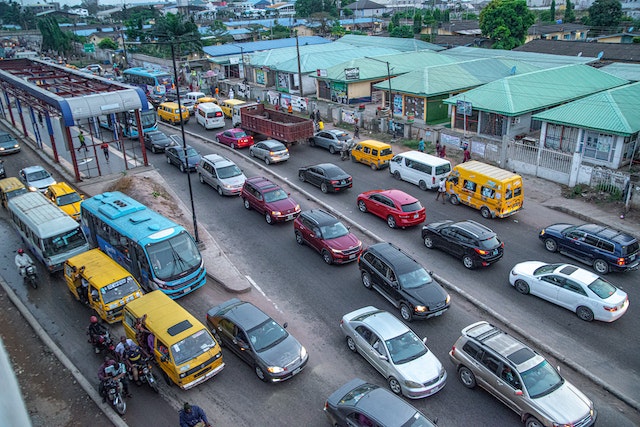
Ogun State is a southwestern state in Nigeria and is popularly known as “the Gateway State.” Its thriving industrial districts make it one of the richest states in Nigeria.
The state is home to several major factories, including Dangote Cement in Ibese, Lafarge Cement Factory in Ewekoro, Nestlé, Memmcol in Orimerunmu, Coleman Cables in Sagamu and Arepo, and Procter & Gamble in Agbara.
Ogun State’s economy is primarily driven by sectors such as cement mills, food processing facilities, breweries, plastic, rubber, aluminum, and paint manufacturing plants.
Agriculture is another significant contributor to Ogun State’s GDP, with crops like rice, maize, cassava, yam, plantains, cocoa, palm oil, tobacco, and cotton making up more than 40% of the state’s GDP.
Abeokuta, the capital city of Ogun State, serves as an essential economic hub, connecting Lagos to the rest of the country through road and rail transportation.
Although Ogun State is primarily an agricultural state, it has significant mineral resources such as limestone, chalk, phosphate, and clay. The Aro granite quarry in the state provides most of southern Nigeria with construction materials.
Ogun State has a total surface area of arable land, with only 30% currently in use for farming. The remaining portion is covered by tropical rainforests and savanna woodland in the northwest.
4. Delta State (IGR: N80.2 billion)
Delta State, located in the Niger Delta region, is the fourth wealthiest state in Nigeria, producing 35% of the country’s crude oil output and holding 40% of its natural gas reserves.
In addition to oil and gas, Delta State boasts other natural resources, such as silica, lignite, kaolin, tar sand, gemstones, and limestone.
Textile, glass, chemical, chalk, plastic, and rubber plants are among the state’s main industries, with fishing and farming also playing a significant role.
The Delta Steel Company (DSC), a steel manufacturing facility in Aladja, is one of the state’s major industries, though it is currently under the control of Premium Steel and Mines Limited (PSML).
Delta State’s Ethiope River, renowned for being the only clean body of water in Nigeria, is a popular tourist attraction, and its source flows under a magnificent tree, adding to its mystique.
Delta State is home to one of Nigeria’s major marketplaces, the Ogbe-Ogonogo Modern Market, and receives 13% of the federal income from natural resources on a derivation basis, according to Nigeria’s 1999 constitution, further cementing its position as one of the country’s wealthiest states.
5. Kaduna State (IGR: N52.9 billion)
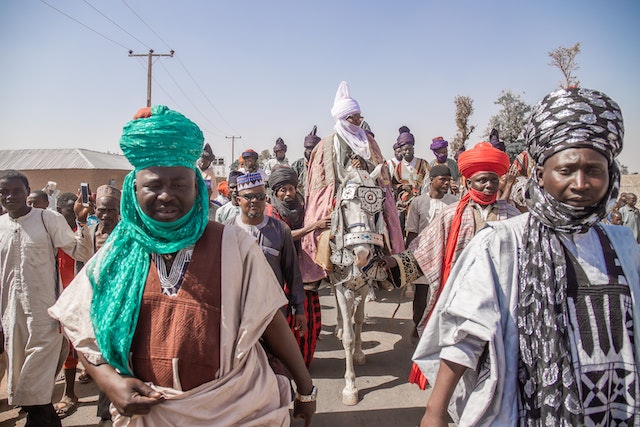
Kaduna State, located in Northern Nigeria, is ranked as the fifth-richest state in Nigeria. The state’s primary economic contributor is agriculture, which accounts for 80% of its GDP. The state is known as the leading producer of cotton in Nigeria, while also cultivating yams, beans, millet, ginger, rice, potatoes, tobacco, and cassava, ranking it among the richest states in Nigeria currently.
Despite having one of the four oil refineries in Nigeria, the state’s refinery is no longer functional. Kaduna State has more than 350 manufacturing companies, dominated by textiles, food, and cattle. Most of these firms are small and medium-sized enterprises.
Commerce and services account for more than a quarter of Kaduna State’s gross domestic product, making it the richest state in Northern Nigeria. Animal husbandry is another significant contributor to the economy, including poultry, sheep, goats, and pigs.
Kaduna State’s natural resources include clay, serpentine, asbestos, amethyst, kyanite, gold, graphite, and sillimanite graphite. The state is also a significant player in the education sector, with more federal universities than any other state in Nigeria.
Related: List of Universities in Kaduna State
6. Oyo State (IGR: N52.1 billion)
Oyo State, founded on February 3, 1976, is the sixth-richest state in Nigeria, with a capital that was once the second most populous city in Africa and is now the third most populous city in Nigeria.
The state is home to Nigeria’s first university, the University of Ibadan, which is considered the top higher education institution in the country.
Despite the state’s urbanization and industrialization, agriculture remains a crucial sector of the economy. Shaki, a city in the western region of the state, is known as the “breadbasket” of Oyo State, with cassava, cocoa, and tobacco being the most important crops.
Oyo State also boasts several cottage industries, such as cotton spinning, weaving, leather dyeing, and wood carving.
Ibadan, the state capital, is home to a variety of businesses, including food processing, breweries, printing facilities, furniture manufacturing, and car assembly plants. The city is also surrounded by agricultural regions and tropical forests.
Research institutes such as the International Institute of Nigeria and the Federal Cocoa Research Institute are also located in Ibadan, making it an important hub for scientific and technological research.
Overall, Oyo State is considered one of the richest states in Nigeria due to its diverse economic sectors and significant contributions to the country’s educational and research landscape.
Related: List of Universities In Oyo State
7. Edo State (IGR: N42.4 billion)
Located in the southwest region of Nigeria, Edo State was established on August 27, 1991, and is situated near the center of the ancient Benin kingdom. The state is ranked as the seventh-richest in Nigeria and produces crude oil, which contributes less than 10 percent of its revenue.
Despite its oil production, agriculture remains the mainstay of Edo State’s economy. The state produces yams, cassava, oil palm, rice, and maize as subsistence crops, while rubber, lumber, and palm oil are the primary income crops.
The state is also home to various manufacturing industries, including medicine, rubber, plywood, beer, timber, and furniture, which contribute to its economic prosperity.
8. Kano State (IGR: N40.4 billion)
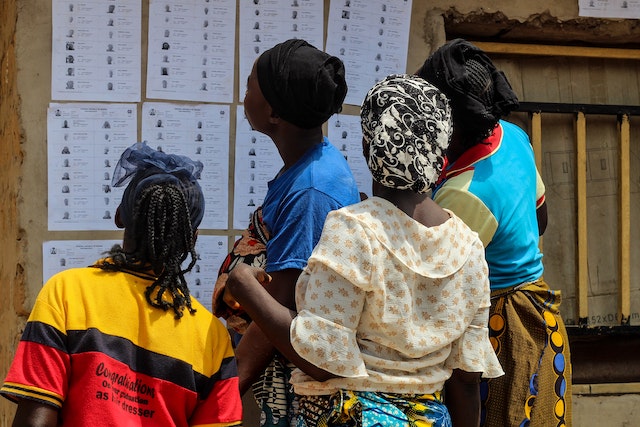
Kano State, the eighth-richest state in Nigeria, is a major commercial center, transacting over 20 billion NGN daily. The state closely correlates with the old Emirate of Kano, which ruled the area before British colonization, and is the second most populous state in Nigeria. Did you know that Kano State has the highest number of local governments in Nigeria?
Kano State is known for its food processing, textile (African Textile Manufacturers Ltd.), vehicle assembly (National Truck Manufacturers Ltd.), pharmaceutical, stationery, and footwear industries, which together account for about two-thirds of the state’s GDP.
Over 60% of Kano State’s population engaged in subsistence farming, with peanuts, rice, wheat, soybeans, sesame, cotton, and peppers being the primary crops.
As one of the richest states in northeast Nigeria, Kano State boasts the largest grain market in the subregion, and its city of Kano is the second most industrialized city in Nigeria.
Related: List of Universities In Kano State
9. Akwa-Ibom State (IGR: N31.4 billion)
Akwa-Ibom State, located in Nigeria, is the nation’s ninth-richest state and the third-largest producer of oil and gas. The oil and gas sector accounts for 59% of the state’s GDP, surpassing agriculture, which contributes 15% to the state’s prosperity.
The state’s key agricultural products include palm oil, rubber, maize, cassava, yams, and rice, but fishing is also a significant industry due to the state’s coastal location.
Despite being a minor contributor to the state’s economy, the information and communications technology (ICT) and industrial sectors account for 6% and 4% of GDP, respectively. A few small and medium-sized technology enterprises have emerged in the state’s capital, Uyo.
Akwa-Ibom State has abundant water resources and significant forest cover due to its location in the Niger Strait. This has made it one of Nigeria’s wealthiest states as its rivers provide fertile ground for crops and fishing.
10. Anambra State (IGR: N30.9 billion)
Anambra State, located in southeastern Nigeria, is known for having the country’s lowest poverty rate and is the tenth-richest state in Nigeria. The state’s capital, Awka, and the port city of Onitsha are its two most important economic hubs, with Onitsha being one of the most populous cities in Nigeria.
Anambra State is rich in natural gas, crude oil, bauxite, and ceramics. It also has vast arable land for agriculture, with over 100% of the land being cultivable. Fishing and farming are essential economic activities in the state.
Anambra State’s rise to become one of the richest states in Nigeria began in 2006 with the establishment of Orient Petroleum Refinery (OPR), Nigeria’s first private refinery. In 2012, Anambra became an oil-producing state due to the efforts of Governor Peter Obi and other Orient Petroleum players.
An indigenous firm found oil in the Anambra River Basin, which also has undiscovered gas deposits with a potential of one quadrillion cubic feet. The state has around 13 oil wells and can produce over 100,000 barrels of crude oil per day.
Anambra State is also home to Nnewi-based Innoson, Nigeria’s top automotive manufacturer. Additionally, Onitsha is home to International Breweries PLC, established in 2012 with an annual production capacity of 2.7 million hectoliters via brands such as Hero Lager, Castle Milk Stout, Grand Malt, and Beta Malt.
Onitsha is a significant commercial and market center in West Africa, contributing to the state’s internal revenue. Anambra State has the majority of financial institutions, including the Nigerian Stock Exchange, further boosting its position as one of Nigeria’s richest states.
Summary of The Richest States in Nigeria
As it stands, the South-West zone recorded the highest revenue, followed by the South-South zone and the North-East zone.
Here is a summary list of the richest states in Nigeria for 2024 below:
- Lagos State (IGR N400 billion)
- Rivers State (IGR N123.3 billion)
- Ogun State (IGR N100.7 billion)
- Delta State (IGR N80.2 billion)
- Kaduna State (IGR N52.9 billion)
- Oyo State (IGR N52.1 billion)
- Edo State (IGR N42.4 billion)
- Kano State (IGR N40.4 billion)
- Akwa Ibom State (IGR N31.4 billion)
- Anambra State (IGR N30.9 billion)
The Federal Capital Territory (FCT), where the capital city of Abuja is located, is excluded from the list of states ranked by wealth as it is not considered a state. Under normal circumstances, the FCT would be the second wealthiest state in Nigeria, but it is not included in this ranking.
The richest states in Nigeria are those with the highest revenue from oil production and other sectors. Lagos, Rivers, Delta, Akwa Ibom, and Oyo are some of the top states that are economically prosperous due to their natural resources, strategic location, and well-developed infrastructure.
However, it is important to note that the distribution of wealth within each state varies, and not all individuals in these states are equally wealthy. Furthermore, there is a need for the government to diversify the economy beyond oil and improve the standard of living for all Nigerians, regardless of their location or social status.
This can be achieved through sustainable development, effective governance, and equitable distribution of resources across all regions of the country.
More Topics:

